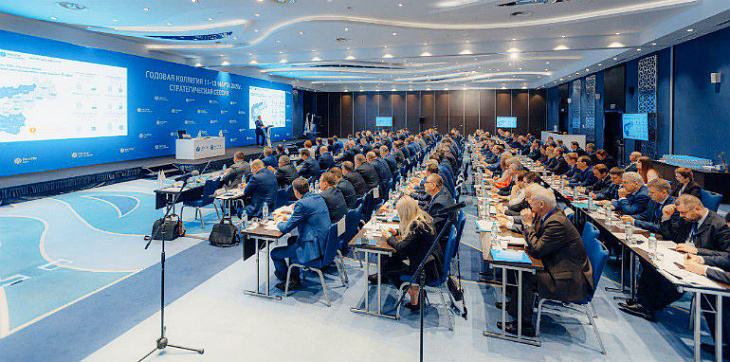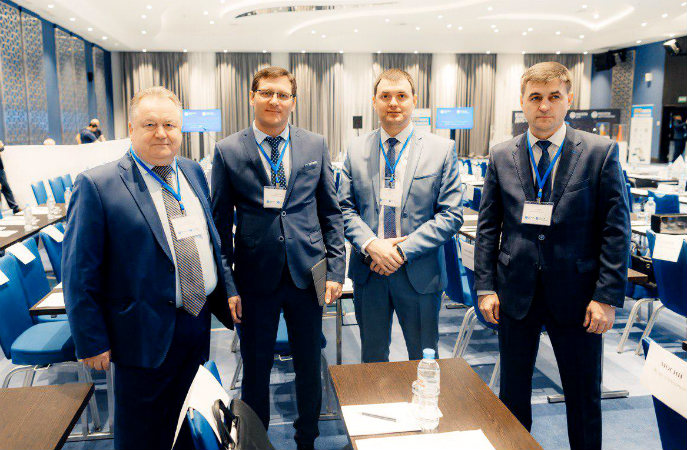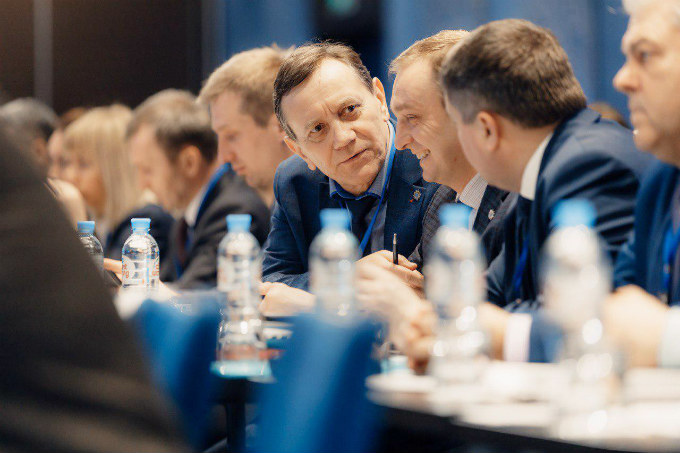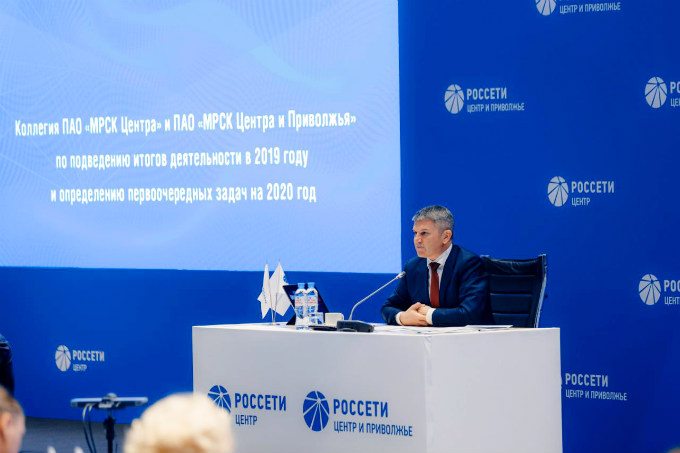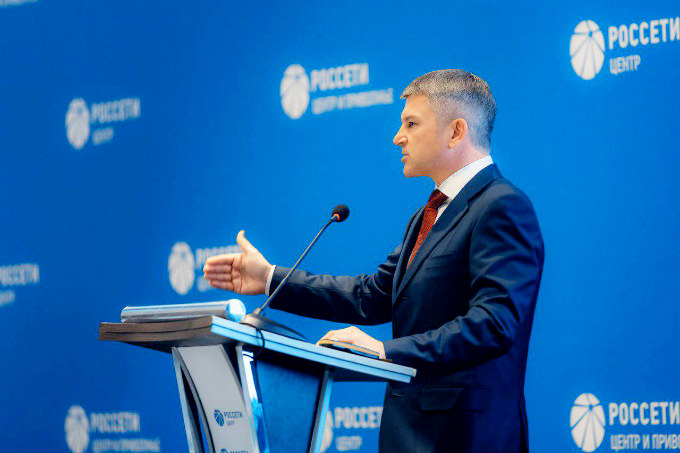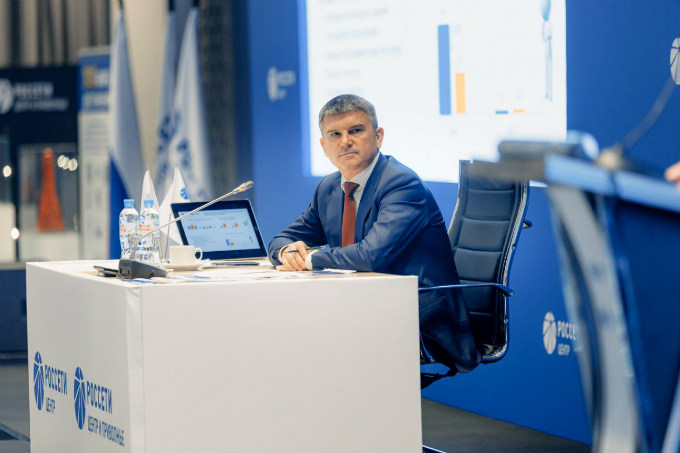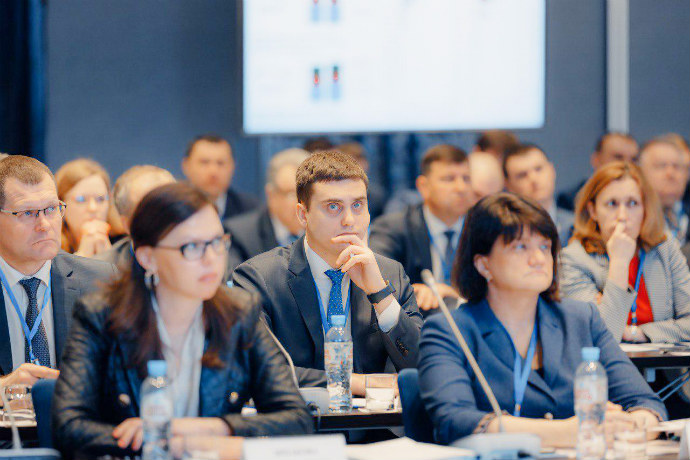A colleagues’ meeting began working at Rosseti Centre - the managing organization of Rosseti Centre and Volga Region. Heads of the main functional areas and divisions of еру energy companies and directors of 20 regional branches take part in it.
Igor Makovskiy addressed the panel members with an opening address. The head of the companies summed up the work of Rosseti Centre and Rosseti Centre and Volga Region in 2019. Igor Makovskiy emphasized that during this period the teams of the companies made significant efforts to solve key tasks to increase economic efficiency, accelerate the implementation of digital transformation measures, ensure the growth of non-tariff revenues, improve reliability indicators and reduce losses, and consolidate power grid assets.
In particular, General Director of Rosseti Centre and Rosseti Centre and Volga Region noted that in 2019 more than 38% of significant events of the Map of Achievements of Digital Transformation were implemented. The funding for these activities amounted to over 6.5 billion rubles. Currently, the Companies are already actively working on the formation of a roadmap for the second stage of the digital transformation program. Among the planned key technologies, Igor Makovskiy named the Grid Control Centres and digital radio communications, deep analytics systems using artificial intelligence, flexible dashboards for managing robotics, energy storage, and business process analysis technologies.
“The past year became a test for us - and we passed it successfully, having solved all the ambitious tasks that confronted us. This allows us to look into the future with confidence and be ready to achieve new goals and milestones,” stressed the head of Rosseti Centre - the managing organization Rosseti Centre and Volga Region.
First Deputy General Director - Chief Engineer of Rosseti Centre Alexander Pilyugin, who spoke further, dwelt in detail on the results of production activities of the Companies in 2019 and tasks for the current year. Among the priorities, he noted a further increase in reliability indicators and the quality implementation of production programs.
Vladislava Rezakova, Deputy General Director for Development and Sale of Services, spoke about the results of work in the field of connection of customers to electric grids and measures taken to increase the efficiency of sale of value-added services. She also introduced the meeting’s participants to the results achieved in the field of loss reduction.
The results of the financial and economic activities of Rosseti Centre and Rosseti Centre and Volga Region for 2019 were announced by Artem Aleshin, Deputy General Director for Economy and Finance. He, in particular, said that both companies completed the year with positive financial results. It was possible to achieve the fulfillment of the business plan in this part, first of all, due to timely response to the negative impact of external factors through operational adjustments and management of budget parameters.
Dmitry Sklyarov, Deputy General Director for Investment and Capital Construction, spoke about the implementation by Rosseti Centre and Rosseti Centre and Volga Region of investment programs in 2019, indicating that the total financing for the Companies’ capital investments amounted to 31.5 billion rubles. This allowed the commissioning of more than 2,000 MVA of transformer capacity and over 10 thousand km of power lines.
First Deputy General Director - Director for Development Vitaly Akulichev familiarized the audience with the results of the production rating of the Distribution Zones and the branches of Rosseti Centre and Rosseti Centre and Volga Region according to the results of 2019. Also, reports were made by the heads of the branches of the Companies.
In his closing remarks, Igor Makovskiy outlined the key tasks for Rosseti Centre and Rosseti Centre and Volga Region for 2020. Among them, the head of the companies identified a further increase in the efficiency of work to reduce losses, an increase in non-tariff revenue and a range of value-added services, an increase in labour productivity, and the continued accelerated implementation of the digital transformation program.
